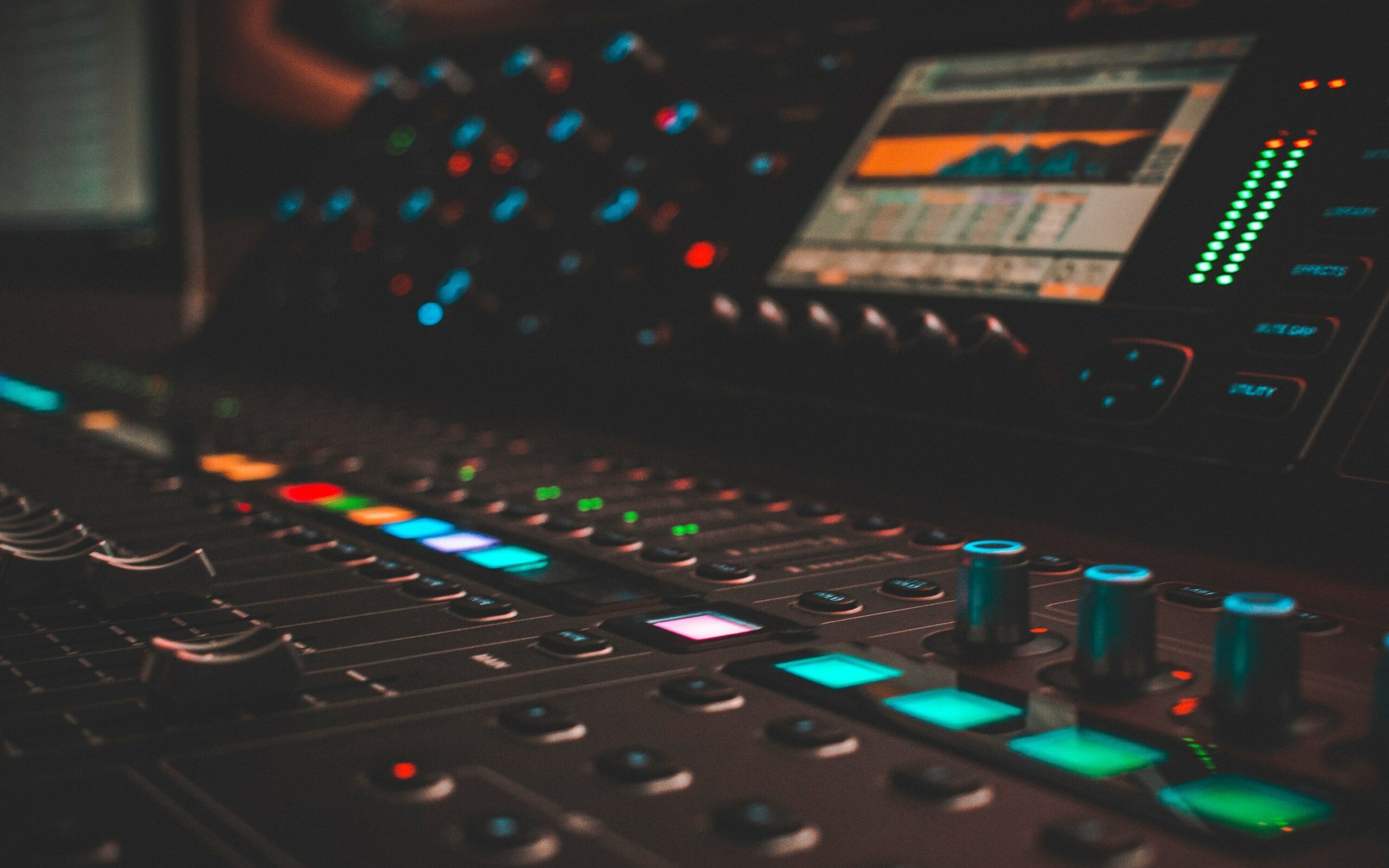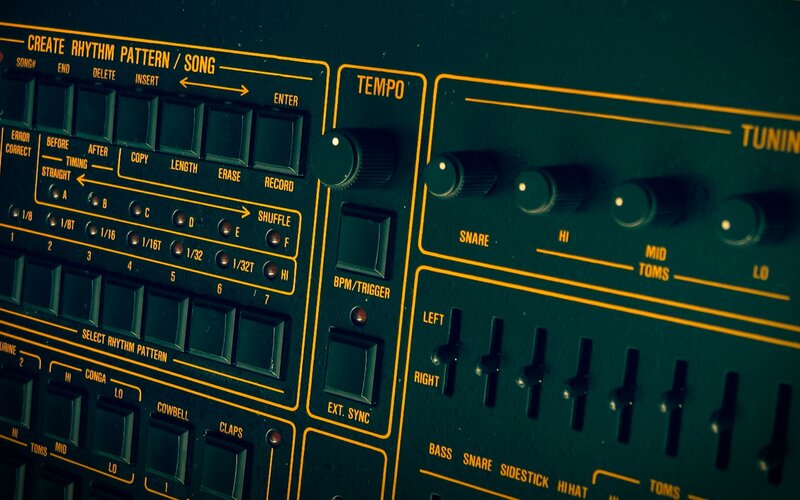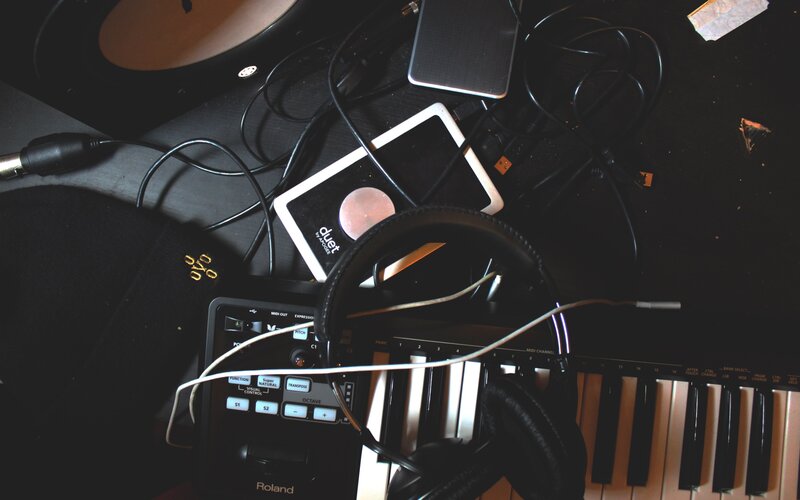
Finally ready to chase that Grammy? You’re in the right place. Thanks to new tools, apps, online classes, and software, anyone can produce music in today’s world – from the corner of their bedroom or on their daily commute.
Wondering how to start producing music? Read on to discover music producer, Mark Ronson’s tips for starting out in the industry.
What is a music producer?
A music producer’s role is to work with artists to bring their vision for their song or album to life. This can include helping with anything from songwriting, performing, and arranging to the recording stages of a song or album. A music producer’s responsibilities will differ depending on the scope of the project, the skillset and visions of both creative parties and their relationship with one another.
“Being a great record producer is being put into any situation and understanding what the best decision is musically for that. That could be – making the best track, writing the best song with someone, or recording the best vocal,” says Mark Ronson, in his BBC Maestro music production course. “If you learn all of these tasks to the best of your ability (and you’re never done learning), there will be no situation that you can be put in (or no record), where you won’t be able to do something to make that music, or that record better.”

How to start producing music
Kickstarting a new creative endeavour can seem a little intimidating. Particularly if it’s something brand new to you. If you look at the careers of some of today’s biggest producers though, you’ll see that hunger and curiosity were key attributes that fostered their talents. So, let’s take a look at a few ways to start producing music.
Start studying your favourite music producers
You don’t need to get a university degree to become a great music producer. You can start by researching your favourite songs, albums, and producers. NME and Billboard both list some of the most popular music producers today if you need somewhere to start.
I feel like studying the great records, even if it’s just to see how they work – that is your university.
Mark Ronson
Listen to songs or pieces of music and note what strikes a chord with you. Maybe it’s the captivating lyric or catchy loop in a love song that hooks you, or the iconic level of artistry behind an album that’s rocked the world. It may even be the trademark sound of a specific music producer that makes you feel inspired.
You may want to explore a few genres of music or dive into one specifically. Study what it is the biggest artists of that genre bring to their records, that makes them stand out – and take influence from these. Reusing and reimagining some of your favourite rhythms and sounds within your own music will help tie you closer to that genre or style.
Building up an idea of what you like can really help you start your music production journey and can help you define your voice as a music producer.

Gather the essential tools
There are a few essential tools you need to start producing music. These are:
- a computer (with lots of storage)
- a Digital Audio Workstation (DAW)
- a set of speakers or headphones
A Digital Audio Workstation is an electronic app or device that has the ability to record, edit and produce audio. It allows you to chop and change lots of different tracks with utter precision. Most DAWs will come with a range of sounds of virtual instruments (such as the piano, drums or guitar) that you can play with.
Mark Ronson’s DAW of choice is Pro Tools. In his online music production course, he outlines a few others:
- Logic Pro
- Ableton
- Cubase
- FL Studio
- Studio One
It’s much better to be highly confident in one DAW than spread yourself thin across several, so Mark recommends you do your research before choosing one. There are plenty of tutorials and resources online to give you guidance if you need it. YouTube is a go-to tool for many aspiring producers.
DAWs often include their own audio processors built in, as well as equipping you with samples or loops. You can often find free samples online too. With these, it’s important to check that they are royalty-free before you use them – as trying to clear a sample from a known record can be long-winded and tricky. But before purchasing any DAW, it’s also worth checking that its system requirements will work on your device.
Mark Ronson recommends a simple USB interface like the Focusrite Scarlett as a good one for beginners in his BBC Maestro course. He also advises on the best microphones, speakers and amps to help aid the process.
These steps to start making music can be carried with you throughout your development as a music producer. Keep studying your favourite works (old and new) for inspiration. And keep an eye out for new production tools, apps and software that are shaking up the industry. Who knows, maybe your name will be the next one headlining award ceremonies.
Ready to start making your mark on the future of music? Take a deeper look at Mark Ronson’s course on Music Production.

Give the gift of knowledge
Surprise a special someone with a year's access to BBC Maestro or gift them a single course.


